Organizing Holiday Classes
‘Tis the season to plan ahead for the holidays. Maybe this year, you will consider organizing holiday classes or workshops to draw the public into your store during a time when most may not be thinking about garden centers. Retailers that already hold such classes report that consumers respond with appreciation and delight. Although educational topics may differ, those that relate to the holidays can work anywhere and are limited only by your imagination.
The benefits are symbiotic. Customers enjoy the learning experiences, and the garden center that hosts classes increases its foot traffic and gains sales. The bottom line: “It’s another reason [for consumers] to come in,” said Kathy Norsworthy, marketing coordinator for Molbak’s, Woodinville, Wash.
Consider The Options
When it comes to planning holiday classes, there are many factors to consider: time of day, week and month; class format; session topic; and more. You may find that some classes/topics work best early in the season (late October through early November) and some work well closer to Christmas. For instance, Molbak’s offers Tips For Entertaining classes on weekdays in late October and early November. As Christmas gets closer, the garden center switches gears and focuses on bulb planting and winterizing seminars, explained Norsworthy.
Class format also has an effect on attendance and success. Think about the best ways to please and engage your customers. Will a presentation or lecture satisfy the crowd? Will everyone be able to view a demonstration in your space? Are hands-on activities a better option in your area?
At Barlow Flower Farm, Sea Girt, N.J., a demonstration format draws people in. “People are thrilled,” said Stephanie Barlow-Peduto, owner/manager. “Occa-sionally we bring in a speaker, but the talk alone is not as popular as a combination of speaking and demonstration.”
At Barlow Flower Farm, the in-house master gardener walks the area of the store pertinent to the topic, answers questions and illustrates with a how-to demonstration. Some get extensive, but most are covered in approximately one hour. The people at Barlow’s have found that demonstrations are better received and create less pressure and fewer expectations than when a speaker is brought in.
Ray Wiegand’s Nursery & Garden Center, Macomb Town-ship, Mich., also uses demonstrations. It holds an event within an event: Friday night seminars at the store are a cluster of four demonstrations pertinent to the upcoming holiday season.
“We don’t overdo with educational classes,” said Matt Jesue, retail garden center manager/buyer for Ray Wiegand’s. Rather, sessions are participatory, how-to demonstrations delivered at four separate quadrant tables. Starting in November, topics include wreath design and decorating, how to shape a tree, applying lighting and lighting techniques, and bow-making. “To be successful and satisfy the diverse interests of the many types of people our family outings attract, the event is designed to be as exciting as possible, a multiple event, all going on at the same time,” explained Jesue.
What To Offer
To determine what topics to offer, Jesue suggested thinking like a customer and posing this question: “What would get me to a seminar?” The topics at Ray Wiegand’s cater to children and women, so they draw in families.
Questions customers ask your staff can be fodder for seminar topics. If customers ask certain questions frequently, classes on those topics are likely to be popular. Discovering popular holiday class ideas is a matter of listening to your customers and communicating with employees.
But what if customers are asking about decorating trees? You may think, “Who can’t decorate a tree? What can I possibly teach?” In such instances, try to think like the consumer: The topic works because trends and fashions change, even when it comes to decorating trees. People are always asking for design ideas. With some events, like tree decorating, you can build on holiday traditions while adding a new twist.
If you want to bring speakers in to lead classes, your offerings may be limited (or completely determined) by their schedules. Popular speakers book quickly. The challenge for Norsworthy in coordinating events and having a continuous flow of interesting topics is scheduling busy, popular speakers in advance. At Molbak’s, reoccurring topics will vary from year to year according to trends and changes in the industry.
When To Schedule
When a class occurs (and for how long) is nearly as important as a class’s topic. People want to come Á in on weekends, not at night, said Barlow-Peduto. She schedules eight sessions per weekend, with topics differing on Saturday from those offered on Sunday.
Jesue thinks differently: He considers the Friday-night time slot pivotal. “Timing is critical,” he said. “During the week, kids go to bed early for school the next day. The usual time for an event is 7-9 p.m., at the end of the night after parents have had time to get home from work, relax and have dinner.”
No matter what time you choose weekend, weekdays or evenings remember to consider people’s hectic holiday schedules: Norsworthy recommends not scheduling seminars during the holiday week because people are traveling, and if the holiday falls on the weekend, attendance is always low. Similarly, Barlow-Peduto stays away from busy weekends, skipping Thanksgiving, the last two weekends before Christmas and at least one weekend before any holiday. Needless to say, the holidays are busy enough for consumers (and you, too!).
Remember To Publicize
You can hold the most interesting classes led by the best speakers, but it will not do any good if your customers do not know about them. You can take multiple approaches: Let people know about holiday classes in a variety of ways, such as newspaper ads, in-store posters, radio spots, Web site postings and more.
Norsworthy publicizes her store’s classes in all local newspapers and magazines. She also posts flyers on event boards in the seminar area and at the store entrance and stacks handouts and flyers of coming events at kiosks. The same information is sent to the E-club mailing list and added to the Web site.
For the holiday season, Barlow-Peduto posts a list of upcoming demonstrations. In addition to the list on the front door, event flyers are handed out at the register and backed up with E-mails and a posting on the blackboard outside the store during the week.
At Ray Wiegand’s, flyers are posted and handed out at the register. Some of the fliers list the entire calendar of events for the season, and loyalty members receive post cards in the mail.
Knowing Success
Of course, once you have scheduled the classes, publicized them and had people attend, how do you determine if a class was a success? Jesue feels the main success factor is how full the tables were. If the teacher was not close enough to be heard or people could not get to the demo, then the next year that station should have two tables. If the station was unmanageable with two people, next year it will have three.
“A few drop the ball,” Jesue said. “You know if it feels right or wrong in your gut. If it didn’t work, ask why. Was it the wrong time, too late, too early, wrong location, we didn’t get the word out? If it’s one variable, adjust. Don’t dismiss it. Stick with it. Believe in it. Ask ‘How can I make it better?’ Then if you did everything perfect and it still failed, let it go. It’s all trial and error, no matter what, in running a business,” he added. Taking a close look even at failed classes can’t hurt: Analysis can spark ideas for new classes to introduce the next year.






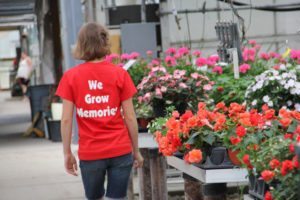
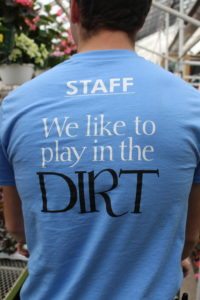
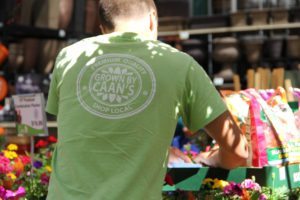

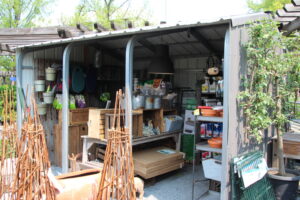
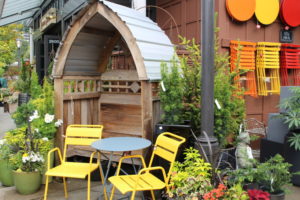
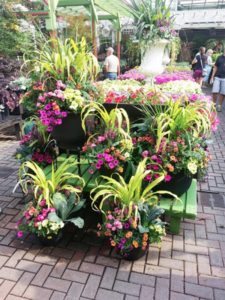
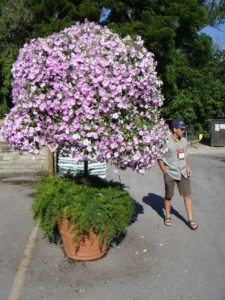
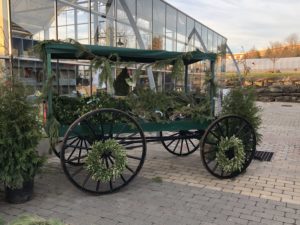
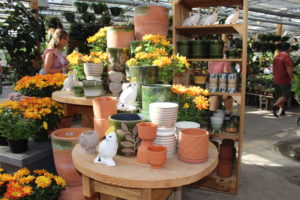


 Videos
Videos





